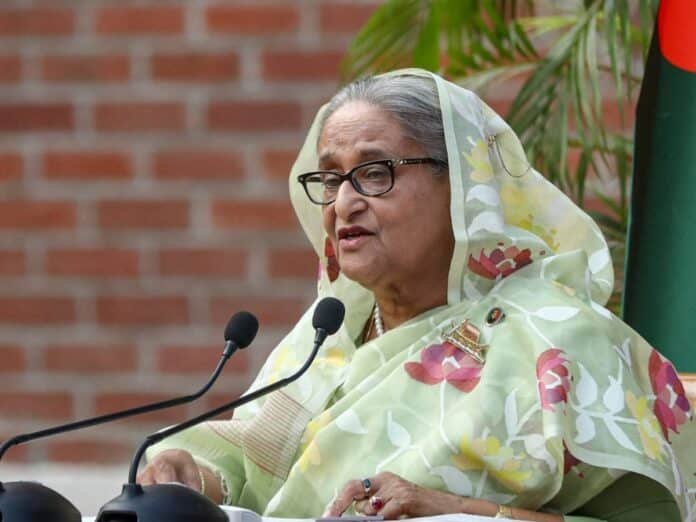In a move that could potentially impact India-Bangladesh relations, the Indian government has extended the visa of former Bangladesh Prime Minister Sheikh Hasina, who has been living in the country since August 2024. This development comes amid growing calls from Dhaka for her extradition, citing serious charges against the Awami League leader.Hasina, 77, fled to India after stepping down as Prime Minister amid nationwide protests that left over 500 people dead. Sheikh Hasina has been residing in a secure safehouse in Delhi, maintaining complete secrecy since her arrival in India on August 5, 2024, when she landed at Hindon airbase.The Interim government in Bangladesh, led by Nobel laureate Muhammad Yunus, formally sought Hasina’s extradition through a diplomatic note sent to India’s Ministry of External Affairs on December 23, 2024. However, Indian authorities have maintained that the visa extension does not indicate asylum, as India lacks a specific law for handling such cases.A Complex Diplomatic SituationThe visa extension has placed India in a delicate position, as it must balance its humanitarian values with the need to maintain good relations with Bangladesh. The Indian government has remained cautious about Bangladesh’s extradition request, citing incomplete formalities.Meanwhile, Bangladesh’s International Criminal Tribunal has issued a second arrest warrant for Hasina, accusing her of genocide and crimes against humanity. The Bangladesh International Criminal Tribunal has issued a directive to law enforcement officials, ordering the arrest of Sheikh Hasina and 11 others, who will then be produced before the tribunal by February 12, 2025.Passport Cancellation and InvestigationIn a parallel move, Bangladesh’s Department of Immigration and Passports announced the cancellation of 97 passports, including Hasina’s, citing alleged involvement in enforced disappearances and killings during protests in July 2024. Maj Gen (retired) ALM Fazlur Rahman, the head of Bangladesh’s National Independent Investigation Commission, revealed plans to travel to India to question former Prime Minister Sheikh Hasina about the 2009 Bangladesh Rifles mutiny that claimed 74 lives. The commission aims to reinvestigate the tragic event and is seeking permission from the government to proceed with the inquiry.Here are two opinions from public citizens of India and Bangladesh:Indian Citizen’s Reaction“I think India’s decision to extend Sheikh Hasina’s visa is a wise move. As a humanitarian gesture, we cannot turn our backs on someone who has sought refuge in our country. However, we also need to consider our relations with Bangladesh and ensure that this decision does not jeopardize our bilateral ties.”- says Mahi, a kolkata resident.Bangladeshi Citizen’s Reaction“Sheikh Hasina must face justice for her crimes. India’s decision to extend her visa is a slap in the face for the victims of enforced disappearances and killings. We demand that India extradite Hasina to Bangladesh, where she can stand trial for her alleged involvement in these heinous crimes.” – says Shoshi, a dhaka resident..A Long and Complex Road AheadThe latest developments have sparked a heated debate about India’s role in providing shelter to Hasina. While some argue that India has a moral obligation to protect the former Prime Minister, others believe that the country should prioritize its relations with Bangladesh.As the situation continues to unfold, one thing is clear: India’s decision to extend Hasina’s visa has opened up a Pandora’s box of diplomatic complexities. The coming weeks and months will be crucial in determining the fate of the former Prime Minister and the future of India-Bangladesh relations. Stay updated with the latest news.
By Anusmita Bhatta
Reporting for True To Life News Media Pvt. Ltd.
